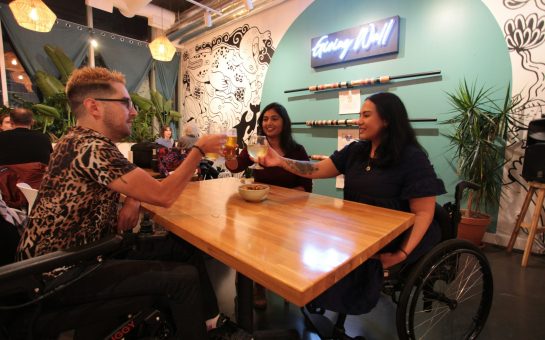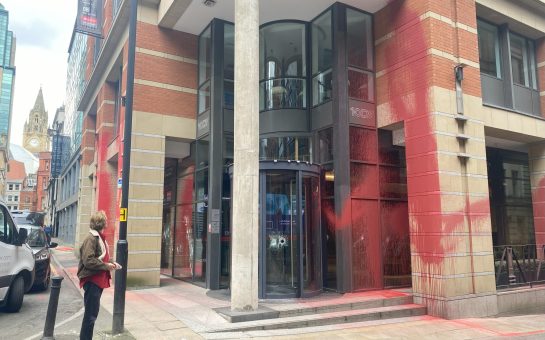After Prime Minister Boris Johnson hinted that lockdown restrictions may be eased from Monday, Manchester Mayor Andy Burnham says it is “hard to say” that the worst of the crisis is behind us.
Pressure on the NHS is easing, as the number of Covid-19 patients requiring hospital care is gradually dropping, with a reduction of patients in intensive care from 190 to 136.
Sir Richard Leese, Council Leader and executive of the health portfolio, has said that Manchester is now on the “right side of the curve”, arguing that continued rises in the number of cases and deaths are mainly due to more effective testing.
Elsewhere, Manchester’s supply of personal protective equipment (PPE) is stable and any trusts struggling to maintain adequate supplies are being aided by other parts of the system.
However, the number of cases in care homes in the 10 boroughs remains a cause for concern.
In the week that the GMCA’s “early warning system” for care homes was established, 55% of care homes reported cases of the virus, up from last week’s figure, and close to 7% of care home residents have Covid-19.
Amidst these mixed numbers, it is plain that there is not a strong downwards trend at the moment in Greater Manchester.
Mayor Burnham therefore warns that “any significant lockdown release would be premature”, and despite some encouraging signs, a cautious approach would suit the North West and protect the public from a second surge in cases.
Furthermore, as the GMCA turn their attention towards measures which will need to be implemented if national lockdown is relaxed this weekend, Mayor Burnham has concerns that technological surveillance will not be enough.
The most vulnerable people in society cannot even afford a landline, let alone a smart phone, so although the NHS contact tracing app soon to be tested is a positive measure, “boots on the ground” will be necessary to limit further increases in cases.
Any relaxation of lockdown measures must also avoid an abrupt end to the furloughing scheme, in order to prevent workers falling into a state of poverty, and businesses from collapsing.
The Mayor recommends a staggered approach to the furlough scheme being altered, so that the most vulnerable people and industries are offered extra protection.
As measures are changed, mistakes made by the Conservative government on testing cannot be repeated and ought to be rectified, Burnham claims, ideally including regular testing of frontline workers.
Meanwhile, Olympic great Chris Boardman, who advises the council on walking and cycling, has more positive news about the changing transport preferences of Mancunians since lockdown measures were implemented.
There has been a 22% increase in journeys by bicycle, and there has been an increase in people cycling and walking, while the number of cars on the road has fallen to 1955 levels.
“I hope people will begin to demand a radical change to the way we provide care in this country,” says Andy. “As well as how we treat those who provide care.”
At today’s #BuildBackBetter press conference Andy set out how healthcare could function differently in future.
Watch .twitter.com/uK4vcWDtmo
— Mayor Andy Burnham (@MayorofGM) May 5, 2020
This has prompted the GMCA to accelerate work on the “bee network” scheme to make the streets of Manchester more bicycle friendly, and remove street clutter from pedestrianised zones.
They have also escalated efforts to roll out a bicycle loan scheme for workers expected next Spring, and to further pedestrianise the city centre, potentially widening pavements on London Road, Princess Street, and Piccadilly Approach.
This change in transport habits reflects the troubles of Metrolink, Greater Manchester’s tram network, which has been brought to the brink of collapse in recent weeks.
The council took on 73% of Metrolink’s costs last week, and will be able to support them in this way until June, but that level of subsidy is not sustainable.
Mayor Burnham has expressed gratitude for extra funding provided by the government for public transport recently, but is not alone among metro mayors who cannot find funding elsewhere locally.
He also wants the national government to introduce clear guidelines on PPE and social distancing for anyone using public transport, such as trams and buses, in the event that lockdown measures are lifted.
Finally, he reiterates his constant “build back better” messaging that this period of hardship must inspire positive cultural change, and not a return to austerity politics.
He identifies wealth inequality, the mistreatment of essential workers, and the disastrous universal credit schemes as the most essential starting points for debate about how society ought to be restructured as the current crisis is abated.
Resources continue to be available online for those seeking official guidelines for businesses, people hoping to volunteer and do their part to help locally, and the latest official medical advice.



